Common Types of CANbus Converter to Connect Industrial Devices
In the world of industrial communication, CANbus converters play a crucial role in bridging the gap between different systems and devices. These converters enable seamless data transmission, ensuring efficient and reliable operation in various industrial settings. Let's take a closer look at the different types of CANbus converters and how they can enhance your industrial communication system.
CAN to USB Converter
The CAN to USB converter is a popular choice for those who need to connect a CAN network to a personal computer or laptop. This converter allows you to easily access and monitor CANbus data on your computer, making it ideal for development, debugging, and diagnostic purposes. With its plug-and-play design, it's simple to set up and use, even for those with limited technical expertise.
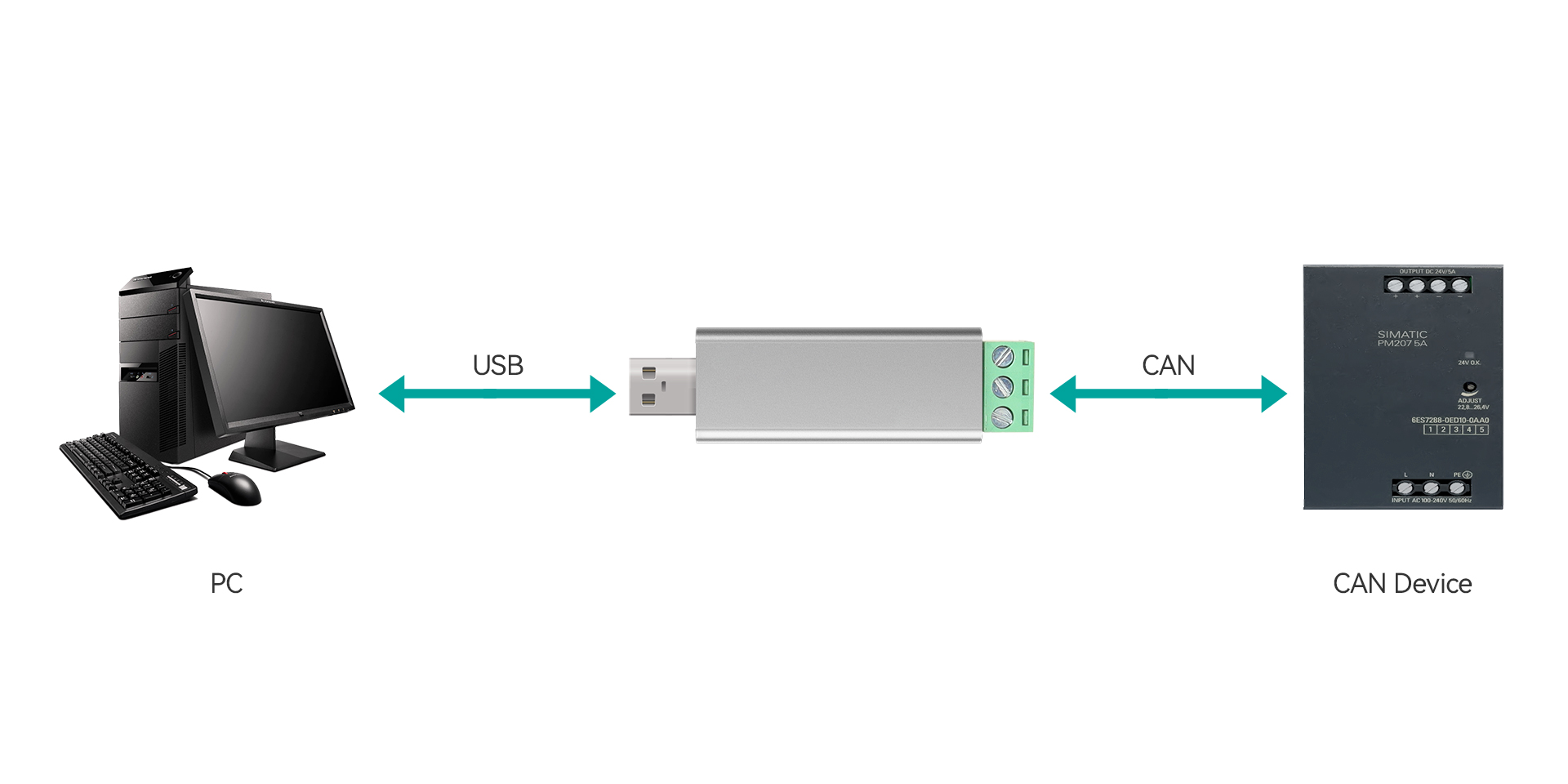
CAN to Ethernet Converter
The CAN to Ethernet converter or server, also known as a CANbus to TCP/IP gateway, is an excellent choice for integrating CANbus networks into larger, more complex systems. By converting CAN data into Ethernet packets, this converter not only facilitates long-distance communication but also ensures seamless integration with other network-based systems. Whether it's for industrial automation, robotics, or any other application that demands reliable and efficient data transmission over significant distances, this converter serves as a dependable bridge between CANbus and Ethernet-based networks.
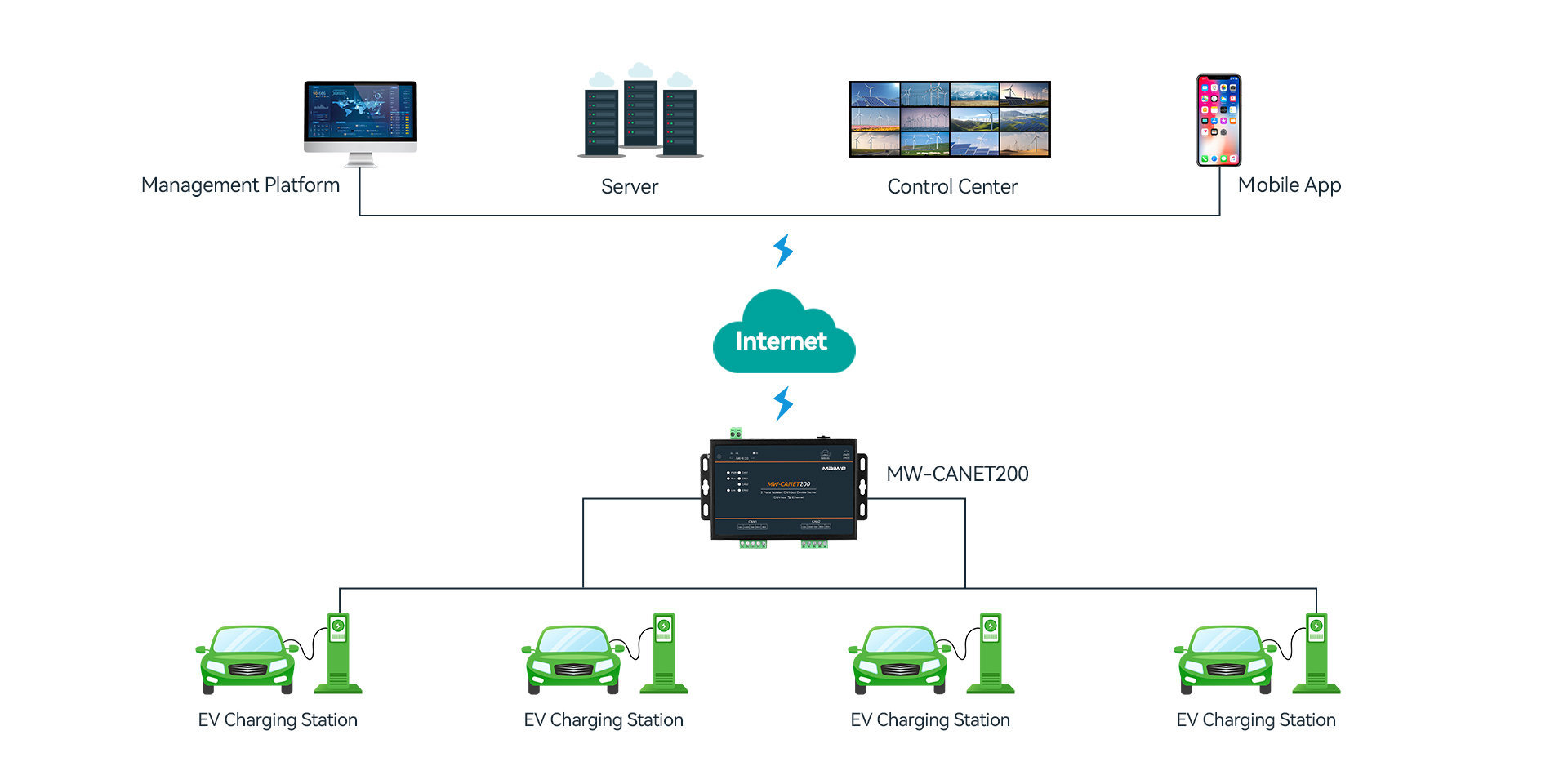
CAN to Wi-Fi Converter
The CAN to Wi-Fi converter offers wireless connectivity for CANbus networks. This converter allows you to transmit CAN data over Wi-Fi, eliminating the need for wired connections and cables. It's a great choice for mobile applications, remote monitoring, and other scenarios where wired connections are not feasible or practical.
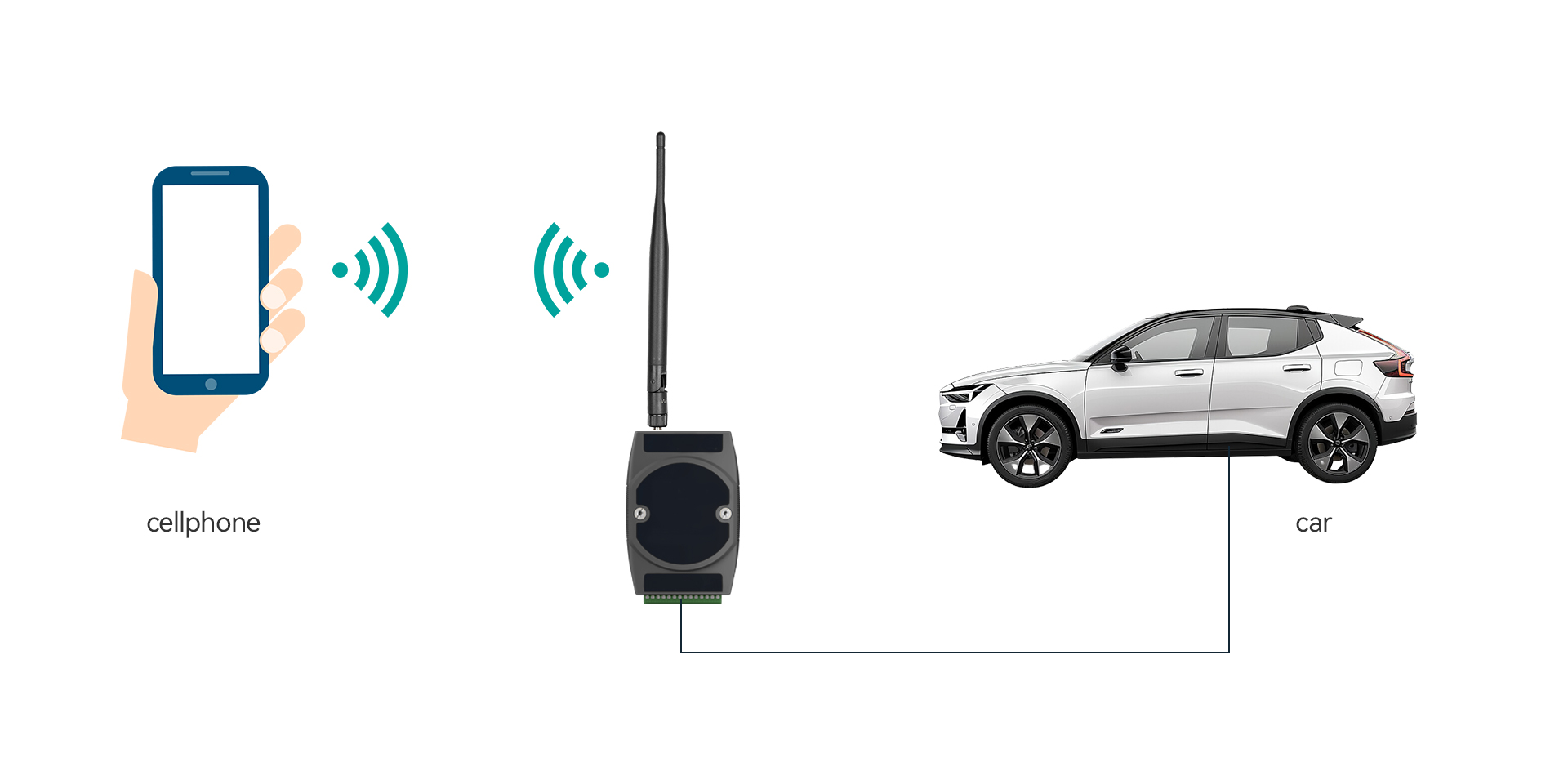
CAN to Serial Converter
CAN to serial converter can convert the data on CAN bus to serial data and then transmit the serial data to PC or other devices.CAN to serial converter devices usually consist of a CAN interface and a serial interface, which can realize the bi-directional data transmission between them. This converter comes in various types, including RS-485, RS-232, and RS-422 CAN interface options, allowing it to cater to a wide range of communication needs.
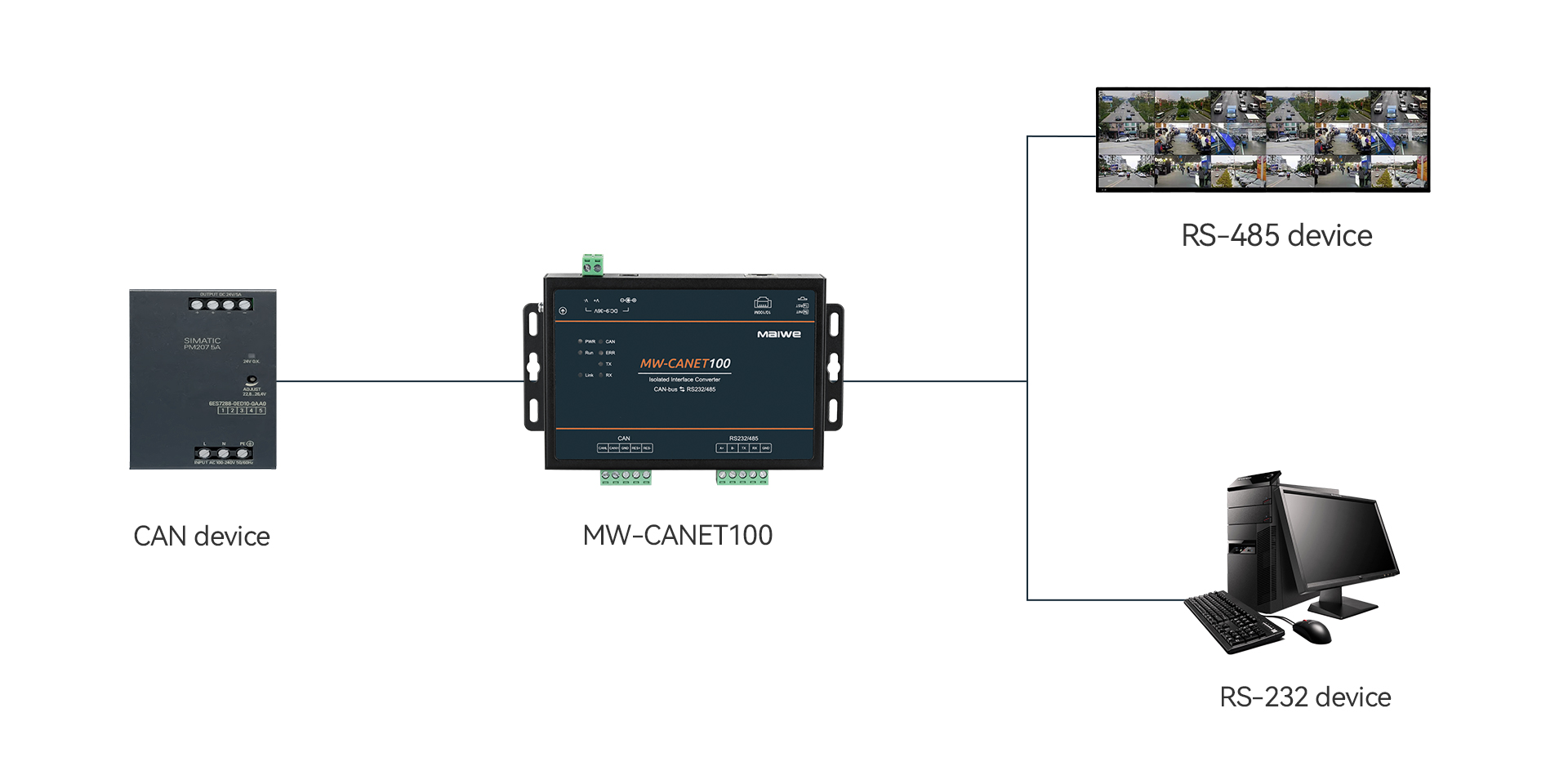
CANbus to RS-232 Converter
RS-232 is a common serial communication protocol widely used in industrial settings. A CANbus to RS-232 converter allows you to connect CANbus devices with RS-232-enabled equipment. This converter is ideal for integrating CANbus-based systems with legacy RS-232 devices in a variety of fields such as the automotive industry, industrial control systems, medical devices and more.
CANbus to RS-485 Converter
RS485 is a highly regarded communication protocol that finds extensive application in diverse scenarios, facilitating communication between numerous devices. It stands out for its impressive speed, minimal latency, and exceptional reliability. RS485 boasts the capability to support connections to a maximum of 128 nodes, enabling efficient communication among multiple devices. A CANbus to RS-485 converter enables you to extend the reach of your CANbus network and connect it to multiple RS-485 devices. This converter can be used in the industrial automation and automotive industries to enhance the quality of communication between devices and improve system performance.
CANbus to RS-422 Converter
RS-422 is another popular differential serial communication standard. It offers improved noise immunity and longer transmission distances compared to RS-232. Fortunately, there are converters available that support the conversion from CANbus to RS-422. These converters allow you to seamlessly integrate CANbus devices with RS-422-based systems to realize multi-node network communication. They can be used in automotive industry, industrial control field and other fields.
CANbus to Fiber Converter
For applications that require high-speed, long-distance communication with excellent noise immunity, a CANbus to fiber converter is the ideal choice. This converter converts CANbus signals into optical signals that can be transmitted over fiber optic cables. Fiber converters offer superior performance in terms of bandwidth, latency, and interference resistance, making them suitable for demanding industrial environments.
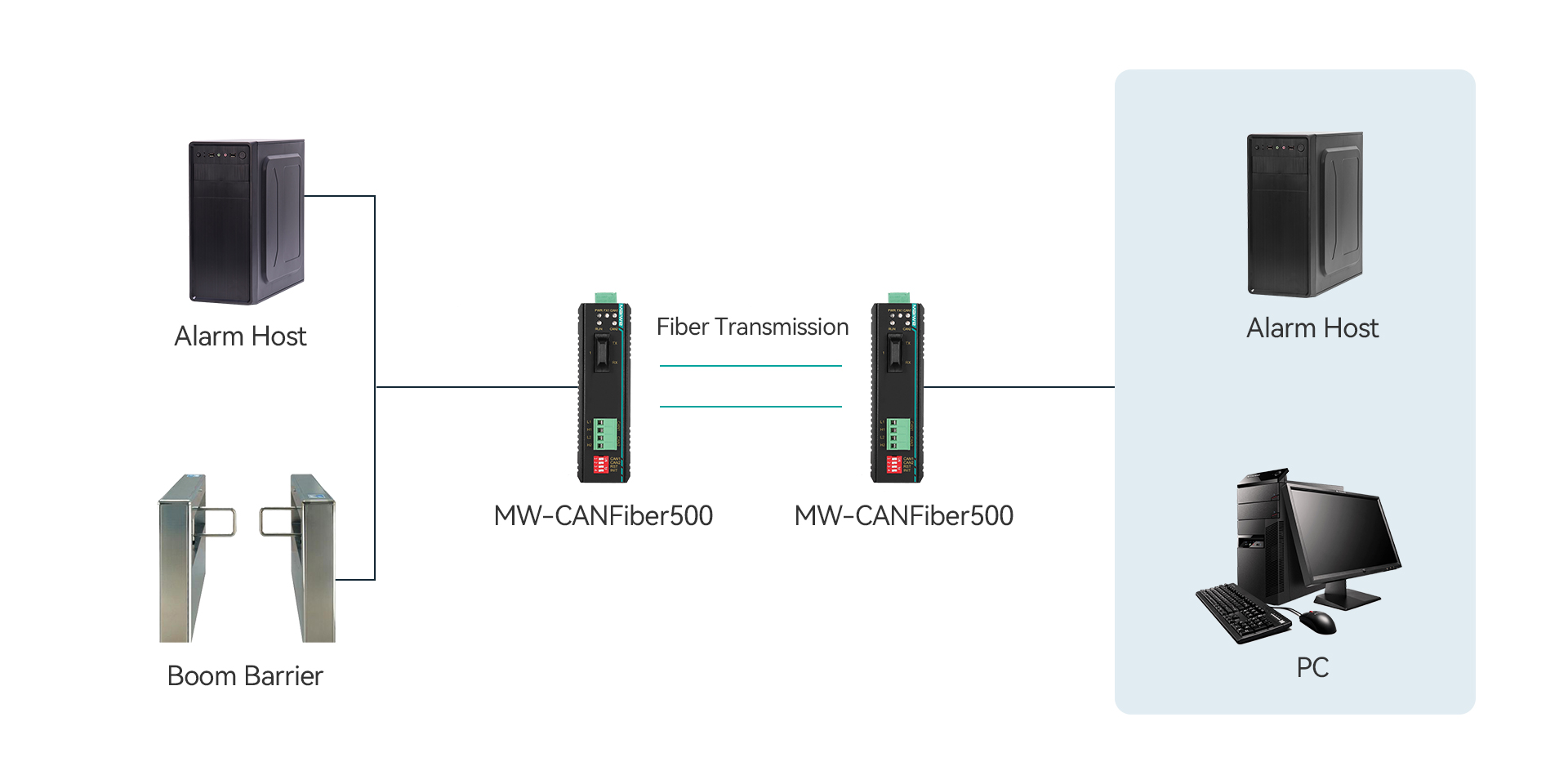
Conclusion
In conclusion, CANbus converters provide a flexible and efficient way to connect CANbus networks with various other communication interfaces. Whether you need to integrate with legacy RS-232 or RS-485 devices, extend the reach of your network using RS-422, or achieve high-speed, long-distance communication with fiber optics, there's a converter that can meet your needs. With these converters, you can ensure seamless and reliable communication between your industrial devices, improving overall system performance and efficiency.





















 Pre
Pre
 Back to list
Back to list